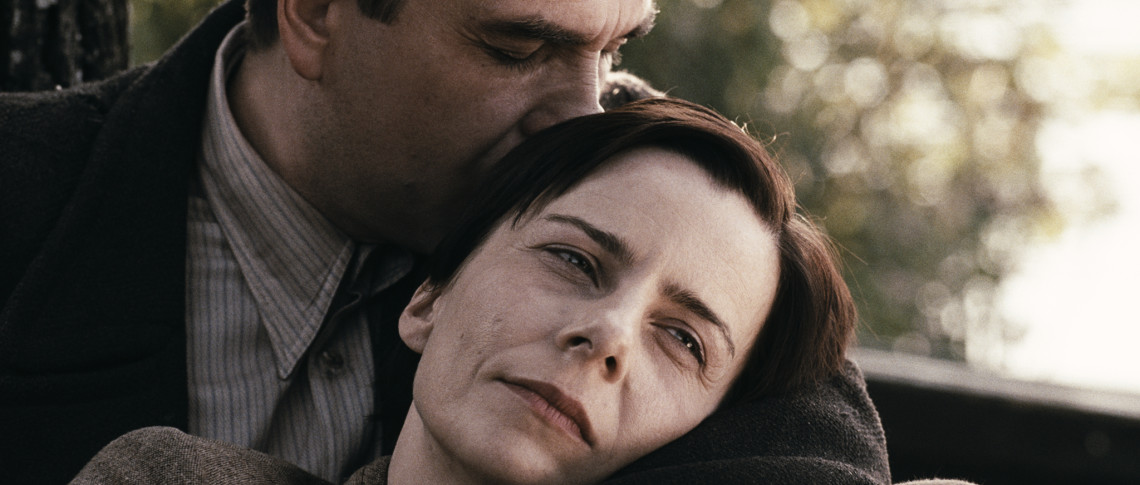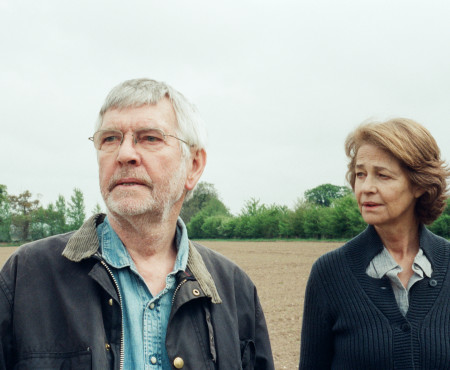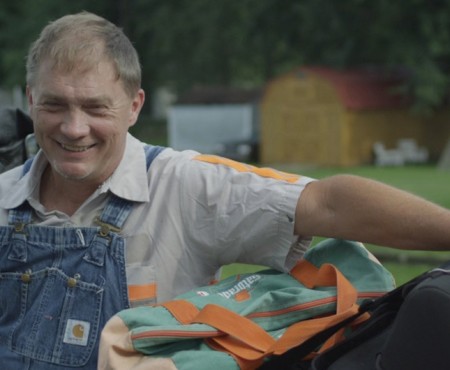A
One of the strongest movies to come out of the Polish film industry in the past 10 years, Wojciech Smarzowski’s Rose plunges head-first into the inchoate mess of the immediate post-war period in Eastern Europe: a time so sensitive – not to mention banned from truthful depiction for so long – that it practically bleeds upon touching.
A brutal melodrama as well as a blatant metaphor for a raped, lacerated land, Rose focuses on one woman’s plight, equaling the ordeal she’s enduring with Polish wartime experience. The eponymous character, played with quiet resilience by Agata Kulesza, is a Masurian woman whose husband got killed and who tries to continue on her own in the most adverse of circumstances. Polish soldier Tadeusz (Marcin Dorociński) pays the widow a visit in order to pass on her late husband’s personal effects – only to end up helping her out with demining an adjacent potato field. A tentative romance ensues, complicated by a number of historical circumstances. First of all, the Masurs are a German-speaking population of the pre-war, multi-national Poland, and are now forced to resettle, often by means of ruthless intimidation. Second: Tadeusz is a Home Army soldier, meaning that he’s wanted by the newly-established Communist authorities, since he has fought for an entirely different Poland than the one he sees being put into place by the Soviets.
The movie plays almost like a companion piece to Krzysztof Zanussi’s acclaimed A Year of the Quiet Sun (1984): one of the first Polish movies to fully depict the terror of Stalinism and the unhinged post-war reality of rapid Soviet takeover. It’s hardly a surprise to learn that Zanussi co-produced Rose, which nevertheless goes much further and hits much harder than his own film. Not exactly a shrinking violet, Smarzowski has established himself as a brutal realist with a taste for the ugly and the grotesque, with such movies as The Wedding and House of Evil presenting Polish experience in an unforgiving, and yet liberating way.
Rose’s purposefully jumbled narrative, in which friends are not always distinguishable from the enemies, allows us to focus on the two battered lovers, even as it leaves no illusions as for a possibility of happy ending. Not in this time, not at this place. Rose’s look suggests a running sore covered in dirt, which makes the sudden bursts of lyricism – perfectly timed by Smarzowski, whose favorite aspect of moviemaking is clearly editing – even more powerful.
Wojciech Smarzowski’s Rose is playing at MoMI on Friday, 19 April, at 7 PM, as a part of the Disappearing Act Film Festival.




















